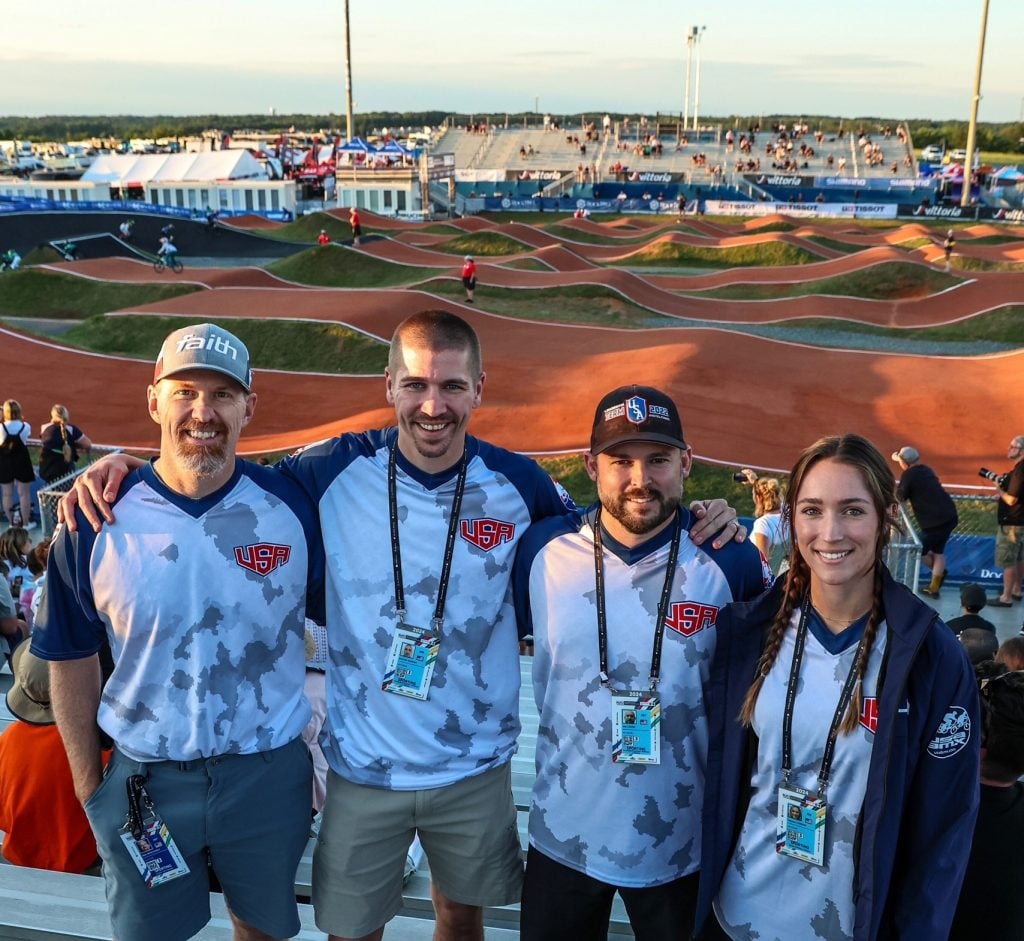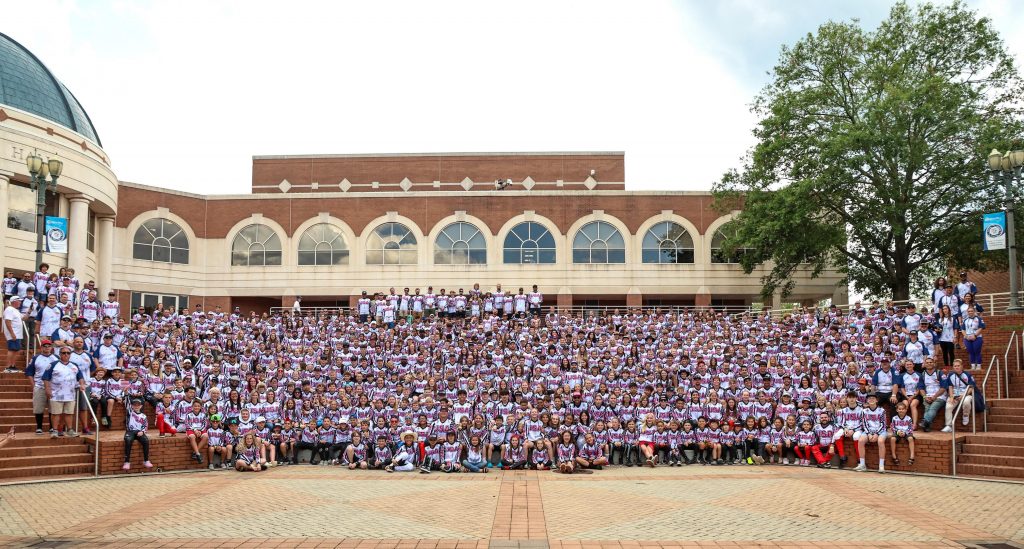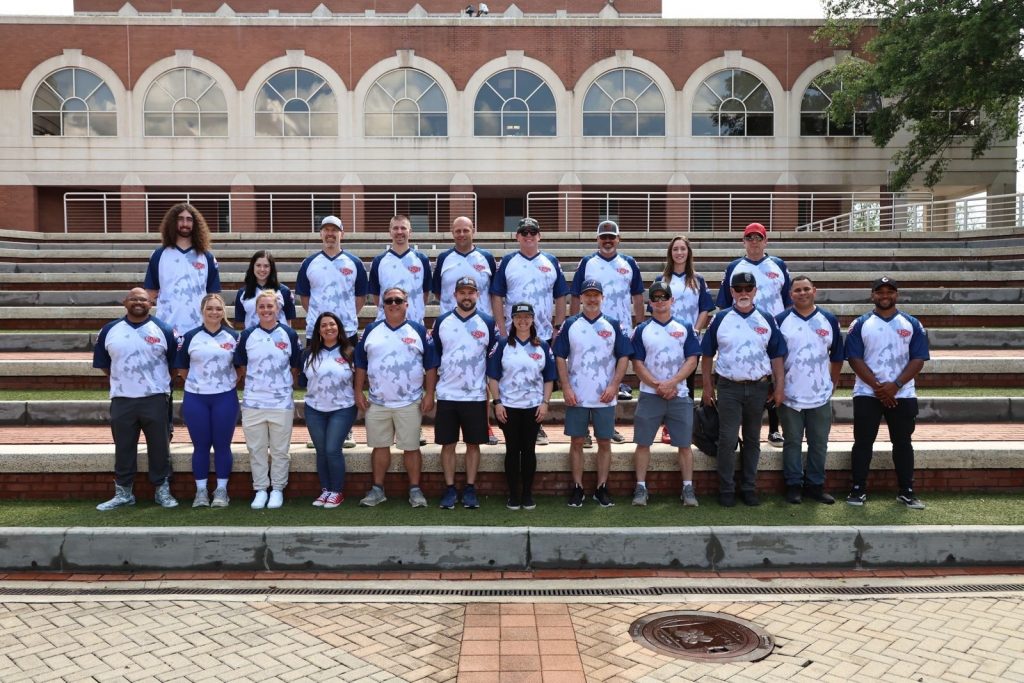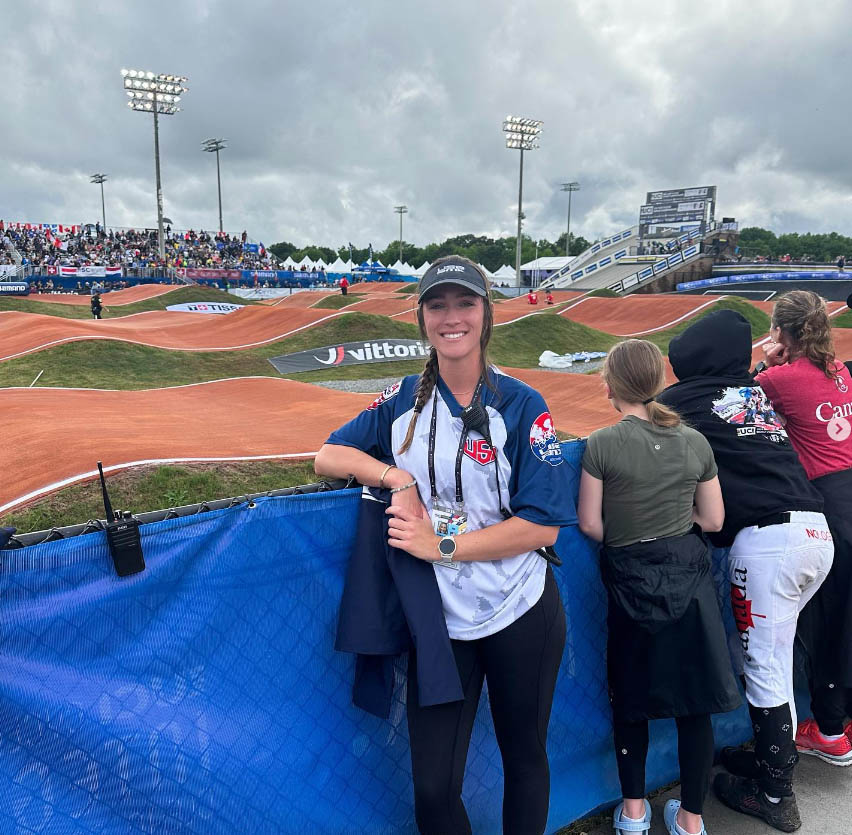
Six fractures on one athlete.
A bad abdominal wound.
Dislocations.
Concussions.
“That’s how extreme it can get,” said Michael McKenney, Grand Canyon University athletic training associate professor, when speaking about the Union Cycliste Internationale BMX World Championships, in which cycling athletes zoom at incredible speeds, up to 30 miles per hour, along ridiculously rugged courses dappled with hills and dips designed to send riders soaring upward of 45 feet.
“For a lot of these kids, it’s the pinnacle of where they’re at. They’re giving it 110%,” said Director of Athletic Training Dr. Brandon Warner. “So that’s where you see a lot of bad injuries, when people compete at their highest to get to that world No. 1 rank or get in that main event to be a world-ranked rider in their class. You drive hard. You fall hard.”
And a team of GCU athletic training professionals – McKenney and Warner, along with athletic training assistant professor Marc Eilers and alumna Rebecca Lambert – was there at the world championships, in Rock Hill, South Carolina, in May to help USA BMX athletes as they strived to reach the top of their game.
Some 3,500 riders from 45 countries competed in the event, an Olympic-qualifying event for elite riders, and the university’s athletic trainers were at the center of it.
It was the first time the United States hosted the world championships since 2017, though it wasn’t the first time GCU’s athletic training faculty has been involved with USA BMX, a division of USA Cycling.
The university’s connection started in 2015, when McKenney traveled to the Chula Vista Elite Athletic Training Center in California for a volunteer internship with Team USA.

“I was introduced to the athletes, the sport and many individuals with USA BMX, and since then, Marc, Brandon and I began helping with national and international race events,” said McKenney, who travels with USA BMX when it competes out of the country. “But it’s a much larger event than it is when we go away because it’s the U.S., and everyone wants to try and compete.”
McKenney, Warner and Eilers worked the world championships when it was in the U.S. in 2017, and McKenney assembled the same team for this go-round, adding Lambert, a 2021 graduate of the university’s athletic training program.
Their job at the event was a little different than when USA BMX is in Phoenix annually for the Winter Nationals in January – an event that McKenney regularly works, alongside as many GCU students as he can recruit, including Lambert.
She racked up clinical hours at the BMX Winter Nationals as a student and worked it this year on a day McKenney wasn’t able to attend.
“I LOVED it,” she said of the Winter Nationals. “You get to see completely different kinds of injuries and different experiences that you wouldn’t get in a traditional AT (athletic training) role, so after I graduated and got certified, I reached out to Mike a couple of times and said, ‘Hey, it’s your other half. If there are opportunities, I’d love to do it.’”
That opportunity presented itself at the UCI BMX World Championships.
For the Winter Nationals, GCU’s team of athletic trainers “do everything,” Lambert said. But the world championships operates with its own staff.
The GCU team helped injured U.S. riders during practice and competition. If the injuries were minor, they managed those injuries themselves; if they were severe, they partnered with the onsite medical team that operated from a mobile hospital unit, Atrium Health MED-1.
“We also took care of previous injuries athletes had coming into the race, so it could be as simple as massages – just working on shoulders, hips, whatever might be bothering them,” said Eilers.
The GCU athletic trainers cared for the 1,000 or so USA BMX athletes, though not all at one time. Riders competed by age group, so about 150-200 athletes per day were under the GCU team’s care.

Those severe injuries – the six fractures on one rider, for example – “those weren’t our riders,” said McKenney, “but that’s how extreme it can get.”
Lambert said she had one rider who was brought into the ER tent with a laceration on his elbow.
“You normally stitch it up and you’re fine. His was deeper, so they sent him to the hospital to get it stitched up in the operating room, but once he got there, his lungs collapsed and he ended up in the ICU. … Obviously his elbow saved him, because if he wasn’t already in the hospital, who knows what could have happened if he was just out and about,” she said.
GCU’s athletic training faculty doesn’t only serve athletes at BMX events.
McKenney, who worked with Team USA at the Summer Paralympic Games in Rio de Janeiro in 2016, will use his athletic training skills at the Summer X games in Ventura, California, at the end of June.
Meanwhile, Eilers will be covering Section 7, headed to State Farm Stadium from June 13-23. It’s the nation’s largest showcase of top basketball prospects, “so you’ll get pretty much every Division 1 coach coming to recruit there,” Eilers said. “Those will be high skills in regard to talent, but compared to BMX, it’s not quite the danger or risk that these athletes have.”
The athletic training faculty, which is part of the College of Nursing and Health Care Professions, are at BMX world championships, top basketball recruitment events and the like while also continuing to teach students on campus.
“We couldn’t do it if we weren’t incredibly well supported by our teams – by Associate Dean Dr. (Maria) Delph and Dean Dr. (Lisa) Smith. They really are a huge support for our program and the things that we do for our students and the things we do off campus to maintain our contemporary expertise.”
Warner, who calls himself “a researcher at heart,” is teaching a general medical conditions class this summer in the athletic training classrooms on the ground floor of Chaparral Hall. And he’ll be busy before the fall semester presenting at various conferences, like at the Southwest Athletic Trainers’ Association District meeting in July in Texas, where he’ll be talking about cupping therapy and rehab and recovery techniques.
GCU’s athletic training program just converted from a bachelor’s to a master’s program, following a national mandate by the program’s accreditors.
“So we have our very first master’s cohort now, and we’ll have another enrolled in the fall,” McKenney said. “We’re just continuing to try and build it up and get ready for all the learners God brings here.”

All those learners will benefit from hands-on work that faculty are doing at these big athletic events – all the latest techniques they soak up from fellow athletic trainers across the country that they bring back to the students in GCU’s classrooms.
“The faculty doing instruction in the classroom every day, that they have that ability to go do those things (like the UCI BMX World Championships), I think it really does enhance the classroom,” Eilers said.
“It creates a reputation that aligns with what GCU is all about, which is practice-based experience, and with sports medicine, that’s critical. It makes your curriculum come alive in a way that you can’t do (otherwise).”
It's really exciting ... to be a part of something bigger than ourselves -- helping these people who have worked so hard to compete at their absolute best to try and achieve great things.
Michael McKenney, GCU athletic training associate professor and clinical coordinator
For Lambert, the BMX experience was invaluable.
“It’s definitely a more high-pressure type of environment,” she said, that’s different from the clinic where she normally works. “The injuries you see are typically a little more severe. It’s a lot of quick decision-making of, OK, is this athlete fine to keep going or do they need to go to the hospital right now?”
But it also gave her a chance to work alongside her former professors. McKenney, Eilers and Warner all taught her when she was a student at GCU.
“It was really cool to get to work alongside people that pretty much taught me everything I know,” Lambert said. “That was really cool to see it come full circle and really feel like a colleague with them.”
McKenney, who is also clinical coordinator in his college, added that what he loved about the BMX world championship and any big athletic event like it: “It’s really exciting … to be a part of something bigger than ourselves – helping these people who have worked so hard to compete at their absolute best to try and achieve great things.”
Manager of Internal Communications Lana Sweeten-Shults can be reached at [email protected].
Related content:
GCU News: GCU athletic training graduate delivers at Amazon
GCU News: Athletic training flexes muscle on key exam
GCU News: Nurse who made the move to U.S. finds passion in teaching



































































